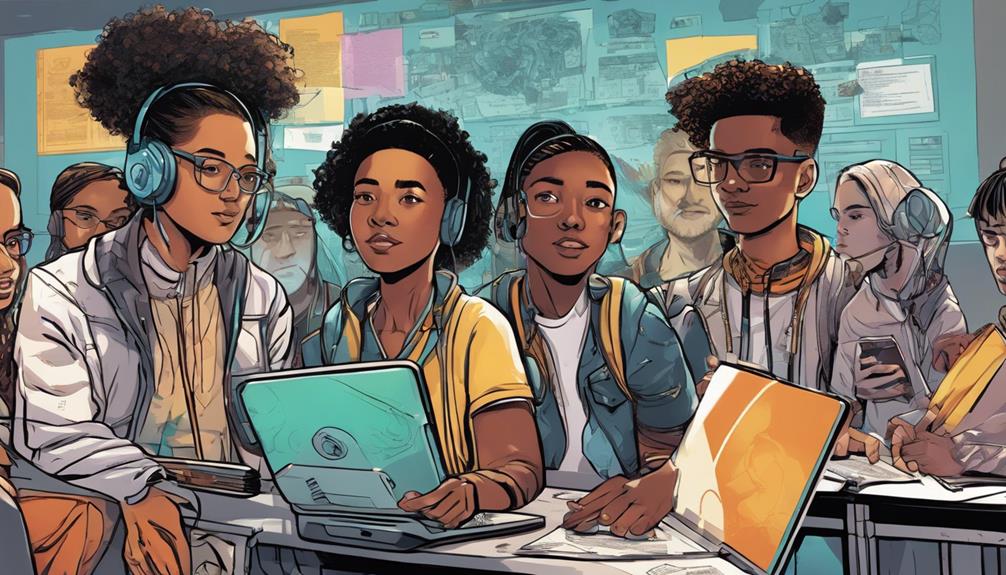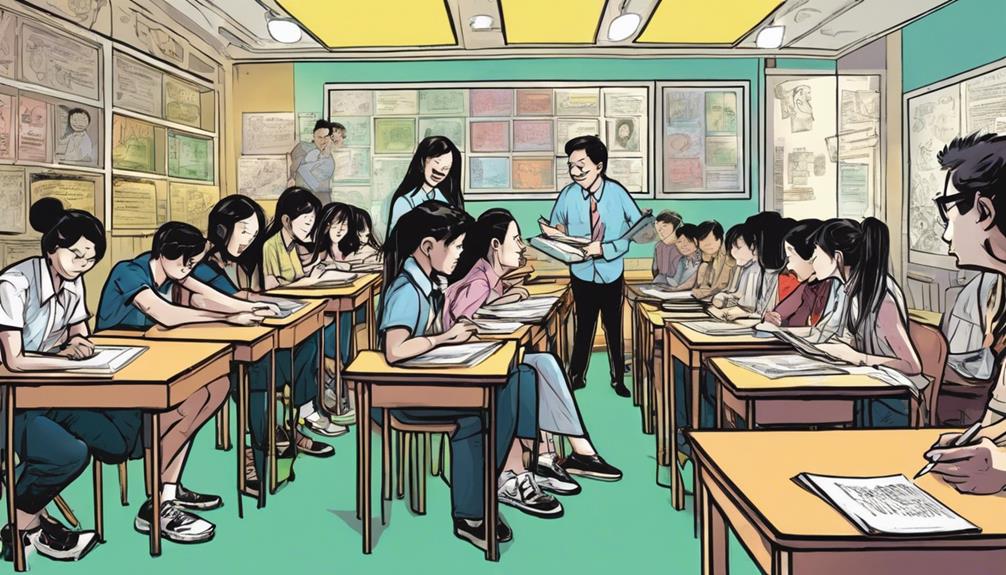AI text classifiers like ChatGPT are completely revolutionizing the education field worldwide! Picture transforming the way teachers instruct and students absorb information—it’s essentially a virtual learning revolution! In fact, math educators are harnessing AI to enhance exam results and spice up their lessons. Furthermore, educational institutions are leveraging new technology to crack down on plagiarism. Students are gaining valuable insights into high-tech ethics and getting ready for a future filled with AI. The impact of AI on education is massive! From cutting-edge study tools to innovative assessment techniques, there’s an entirely new realm awaiting exploration. Intrigued? Keep delving into these mind-boggling transformations!
Key Takeaways
- AI text classifiers enhance personalized learning experiences.
- They streamline grading processes and provide instant feedback.
- These tools promote collaboration and critical thinking skills.
- AI classifiers offer accessibility and inclusivity in education.
- Revolutionizing assessments with adaptive and dynamic evaluation methods.
Impact of ChatGPT on Education

In the domain of education, ChatGPT is revolutionizing traditional teaching methods and posing challenges to academic integrity policies. Imagine having a virtual assistant that can generate essays, solve complex problems, or even provide detailed explanations at the click of a button. ChatGPT is doing just that, reshaping how students interact with information and learn new concepts.
Schools are now faced with the task of updating their policies to guarantee fair academic practices while harnessing the power of AI tools like ChatGPT. Educators, on the other hand, must navigate the changing landscape of education, deciding how best to integrate these technologies into their teaching practices.
It's an exciting time to be in education, with endless possibilities waiting to be explored!
Implications for Mathematics Teachers
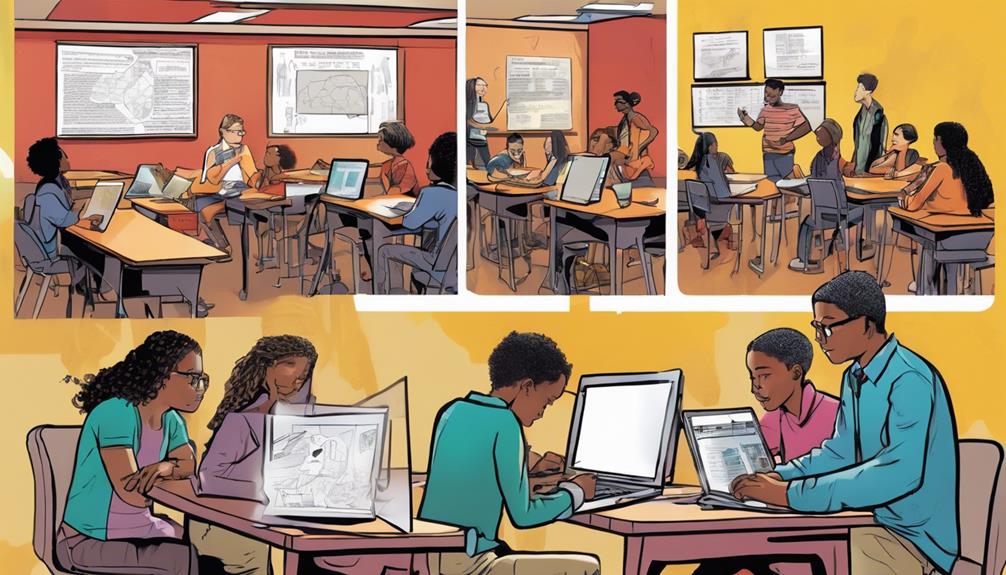
Amidst the evolving landscape of education, Mathematics teachers must adapt to the increasing integration of AI tools like ChatGPT into the classroom. As a Math educator, you may wonder about the implications of AI in your teaching practices. Here's a handy table to help you navigate this new territory:
| Implications for Mathematics Teachers |
|---|
| ChatGPT can ace Math exams |
| Adaptation to AI tools required |
| Rethinking the teacher's role |
| Reevaluation of teaching methods |
Embracing AI like ChatGPT can enhance your math lessons and student engagement. It's an exciting opportunity to explore the intersection of technology and education!
Addressing Plagiarism Concerns
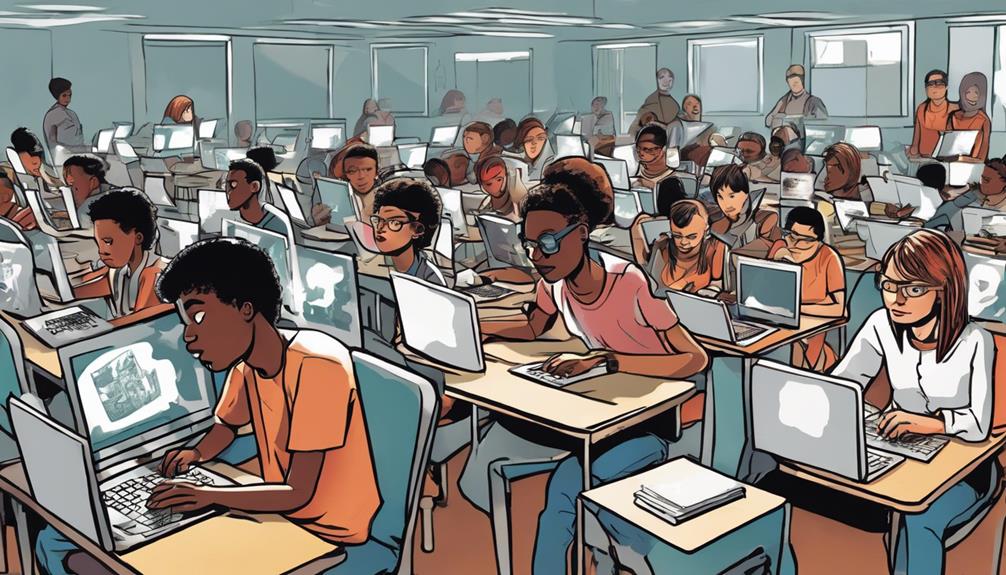
To effectively combat AI-generated plagiarism, educators must proactively implement robust detection strategies. Detecting content created by AI, like ChatGPT, requires specialized tools and approaches. Here are some key points to keep in mind:
- Utilize advanced plagiarism detection software designed to specifically target AI-generated content.
- Collaborate with technology companies to enhance existing plagiarism checkers for AI text.
- Educate students about the consequences of using AI to generate plagiarized work.
- Implement strict academic integrity policies that address AI-generated plagiarism.
- Stay informed about the latest developments in AI detection technology to stay ahead of potential academic dishonesty issues.
Educating Students on AI Use
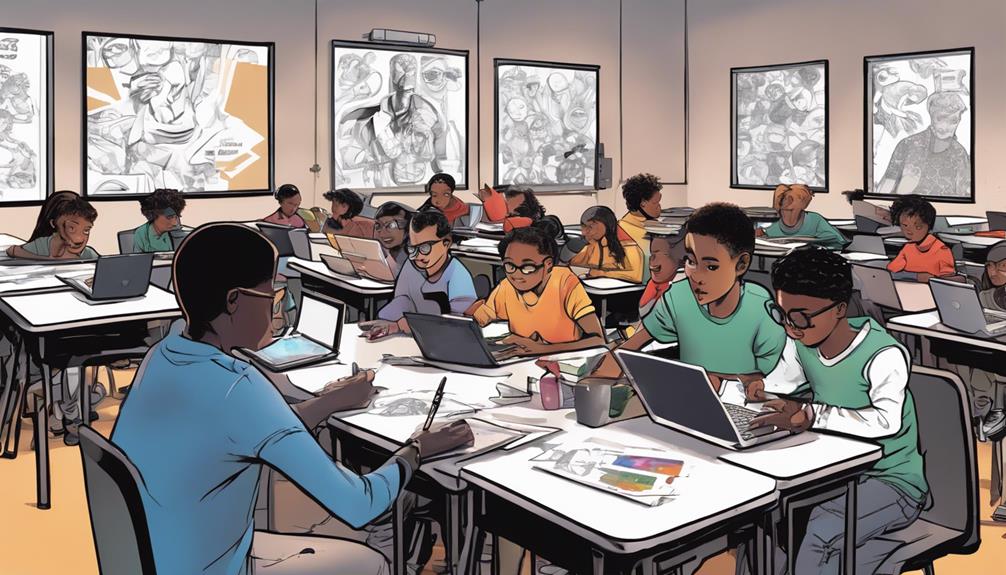
Educating Students on Ethical AI Use
Educate students on the ethical use of AI tools to ensure responsible integration in their academic work. Understanding the impact of AI, like ChatGPT, is vital for maneuvering the future of education.
ChatGPT can assist in generating ideas and content, but it's imperative to use it ethically. Encourage students to explore the limitations and benefits of AI tools through discussions and engaging activities.
By teaching students about AI ethics, they can make informed decisions when utilizing these tools. AI may change traditional assessment methods, so preparing students for this shift is crucial.
Embrace the excitement of learning about AI and its potential in education—it's a captivating journey ahead!
Future of AI in Education

As AI continues to evolve in education, staying informed about emerging technologies is key for educators.
The future of AI in education holds exciting possibilities that can transform how we teach and learn. Here are five intriguing developments to look forward to:
- ChatGPT is just the beginning of AI integration in education.
- New tools like Elicit can enhance student research skills.
- Google is developing advanced AI systems for educational use.
- AI advancements may lead to changes in assessment methods.
- Educators should stay informed about emerging AI technologies for education.
Embracing these advancements will shape the way classrooms operate, offering unique opportunities for both educators and students to excel in a technology-driven world.
Frequently Asked Questions
How Can Educators Ensure AI Tools Like Chatgpt Are Used Ethically by Students?
Guarantee AI tools like ChatGPT are used ethically by students. Educate them on ethical AI use, discuss limitations, and benefits. Address plagiarism concerns with updated policies. Stay informed on emerging AI technologies to guide students responsibly.
What Are the Potential Long-Term Effects of AI Integration on Traditional Teaching Methods?
To adapt to AI integration in education, educators must explore new teaching methods. Consider how AI tools like ChatGPT impact traditional practices. Embrace change, stay informed, and evolve alongside emerging technologies for enhanced student learning experiences.
Are There Specific Guidelines for Handling Assignments Suspected of Ai-Generated Content?
When dealing with assignments suspected of AI-generated content, consider using Turnitin's evolving tools. Educators should assess work thoughtfully, looking for originality. Stay vigilant as AI advancements continue influencing academic integrity policies.
How Can Schools Effectively Prepare Students for a Future Heavily Reliant on Ai?
You should educate students on ethical AI use. Discuss AI tools' limitations and benefits. Adapt teaching methods to AI advancements. Encourage interactive assessments. Stay informed about emerging technologies. Prepare students for a future where AI plays a significant role.
What Measures Are in Place to Prevent AI Tools From Compromising Academic Integrity?
To prevent AI tools from compromising academic integrity, you must enforce stringent plagiarism policies, adopt advanced detection software, and educate students on ethical AI use. Stay vigilant in upholding academic honesty in the digital age.
Conclusion
To sum up, can you imagine a world where AI not only assists educators but also transforms the way we learn? With ChatGPT leading the charge, the future of education is bright with possibilities.
From tackling plagiarism to enhancing teaching methods, AI text classifiers are revolutionizing classrooms worldwide.
So, are you ready to embrace this technological wave and witness firsthand the incredible impact it can have on education? Explore, learn, and be part of the AI revolution in education today!

